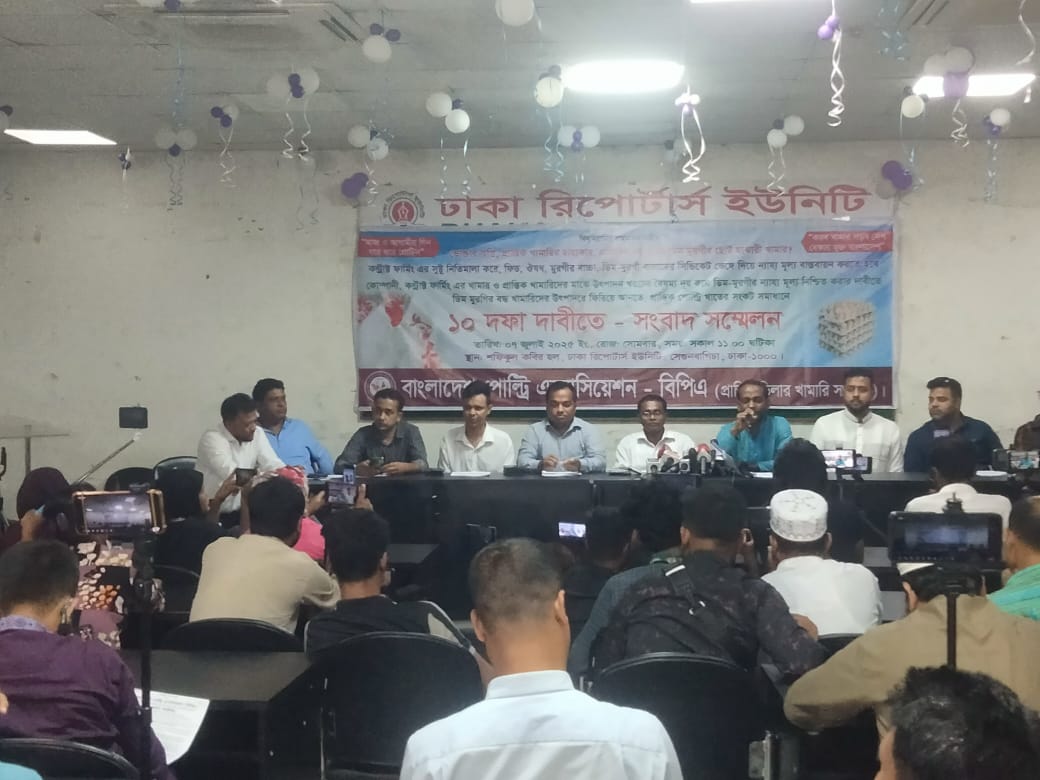Marginal poultry farmers in the country have sought government assistance to protect themselves from syndicates of corporate companies. They urged the government to take steps to ensure transparency in the prices of poultry feed, vaccines, and medicines.
The Bangladesh Poultry Association (BPA) placed a 10-point demand at a press conference held at the Shafiqul Kabir Auditorium of the Reporters’ Unity in the capital on Monday.
During the event, marginal dealers and farmers said, “Corporate companies have strategically reduced the prices of chickens and eggs through contract farming. As a result, at least 10,000 farms have shut down in the last six months due to losses. If rural entrepreneurs’ farms continue to close, corporate entities will gain sole control of the market. They will then form syndicates and arbitrarily raise prices.”
The farmers alleged that corporate manipulation was behind the record price of broiler chicken reaching Tk300 per kg in March 2023. If the government does not promptly formulate policies for the poultry sector, food security will be threatened, they said.
At the event, BPA President Suman Howladar said, “The production cost of eggs on farms is Tk10, but farmers are forced to sell them at Tk 6. Additionally, they incur a loss of Tk 30-35 per kg on chickens. Even though farmers sell at low prices, unscrupulous market manipulators are taking advantage.”
BPA Vice President Bappi Kumar Dey said, “If farmers could buy chicks, feed, and medicines at fair prices, their production costs would decrease. But corporate syndicates force farmers to purchase these at inflated prices, increasing their expenses.”
The BPA’s demands to save the poultry sector and farmers include: Ensuring transparency in feed, vaccine, and medicine prices; government-established feed mills and hatcheries; policy support and collateral-free low-interest loans for marginal farmers; representation of marginal farmers in policymaking; a national poultry census and digital database; issuing entrepreneur identity cards to dealers and farmers; providing training and cold storage at district and upazila levels; ensuring fair prices and market access; facilitating egg and chicken exports; incentives for crisis management; formulating fair contract farming policies; and establishing a National Poultry Development Board.


